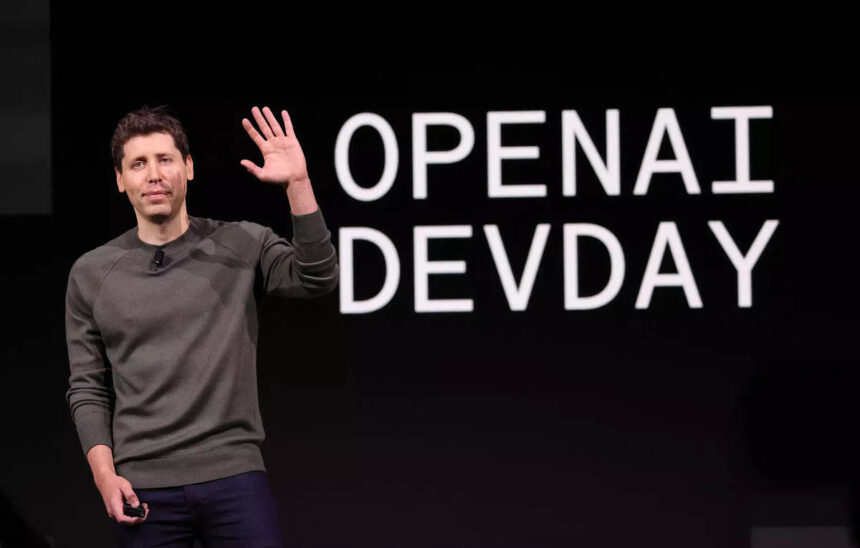In 2023, the world felt precariously balanced, with an impending United States presidential election featuring a resurgent candidate poised to reintroduce the chaos of 2016 and 2020. The rapid advancement of artificial intelligence seemed to materialize suddenly, promising both societal progress and imminent disruption. The wealthiest person globally continued to leverage power, advocating for a more audacious tech world, encompassing unregulated social media, oversold assisted-driving features, and AI with a “rebellious streak.”

Amid this uncertainty, a new conflict between Israel and Hamas unfolded, adding more atrocities alongside the ongoing horrors of Russia’s invasion of Ukraine. These wars resonated across the internet through propaganda, hate speech, and cyberattacks triggering real-world consequences. Chinese state-sponsored hackers planted the seeds for a potential future cyberwar, and ransomware groups experienced a resurgence. It was a tumultuous year marked by both present and impending chaos, all reflected in the digital domain.
Elon Musk
A year ago, Elon Musk was often seen as a brilliant technologist with occasional disruptive and provocative tendencies. In 2023, those tendencies appeared to dominate his public persona. Renaming Twitter to X based on Musk’s whims, the platform welcomed back conspiracy theorists like Alex Jones and amplified antisemitic statements from one account. In response to advertisers’ complaints, Musk, in a single conversation, both apologized for the blunder and dismissively told them to “Go fuck yourself.“

Earlier in July, Musk mentioned a significant drop in his social media platform’s ad revenue, raising doubts about whether this once-central platform for online conversation will survive under Musk’s leadership and in what form.
Amidst this tumult, Musk’s new startup, xAI, launched Grok, an AI chatbot celebrated by Musk for having fewer restrictions than OpenAI’s ChatGPT. Musk is facing calls for an SEC investigation for his comments on monkey experiments conducted by his brain implant startup, Neuralink. In mid-December, Tesla recalled nearly every model sold in the US to address issues with an Autopilot feature. The National Highway Traffic Safety Administration found Tesla’s safety measures inadequate in ensuring drivers’ attention, possibly influenced by Musk’s descriptions of the assisted-driving feature.
Cl0p
In 2023, ransomware made a comeback, potentially becoming the second-worst year on record in terms of total extortion payments collected by ransomware gangs, as per cryptocurrency firm Chainalysis. Among these groups, the Cl0p malware perpetrators stood out for causing significant damage. In May, the Cl0p gang exploited a zero-day vulnerability in MOVEit file transfer software, conducting a spree of intrusions across over 2,000 organizations, according to ransomware-focused security firm Emsisoft. One victim, medical firm Maximus, lost control of the data of at least 8 million individuals in the breach. The hackers also stole data from the state government of Maine, affecting another 1.3 million. In total, at least 62 million people were impacted, and the Cl0p hackers remain at large.

Hamas
No event in 2023 has abruptly and shockingly impacted geopolitics as much as Hamas’ atrocities against civilians in Southern Israel on October 7. These attacks, where Hamas militants killed 1,200 people and took hundreds of hostages, immediately triggered a war with the potential to destabilize the region. This turmoil has also reverberated in the tech world, prompting questions about the digital technologies enabling Hamas, including the millions of dollars raised via cryptocurrency and its use of Telegram channels for distributing propaganda and videos of violence. Similar to how the rise of ISIS in 2014 led technology platforms to reevaluate their roles in enabling extremist violence, a new wave of horrific violence a decade later illustrates the ongoing challenges in addressing these issues.

Donald Trump
After his absence from the list in 2022, Donald Trump has returned to the spotlight. Less than 11 months before the 2024 US presidential election, Trump leads Republican primary polls significantly. His resurgence is marked by disturbing attacks on perceived enemies, primarily through his right-wing-dominated Truth Social platform. In his posts, Trump has pledged, if elected, to initiate federal investigations into media companies and journalists critical of him, prosecute President Biden, and perpetuate discredited claims of winning the 2020 election. This revival of Trump’s influence may resonate with his base, potentially setting the stage for a presidency reminiscent of previous controversial policies, including withdrawal from the Paris Agreement, a “Muslim ban,” family separation at the border, dismantling pandemic protections, and downplaying the seriousness of Covid-19 despite significant casualties.

Volt Typhoon
In the quest to identify a Chinese counterpart to the notorious “Sandworm,” the hacker group referred to as Volt Typhoon by Microsoft emerged as a significant candidate. In May, it was disclosed that Volt Typhoon had deployed malware in power grid networks spanning the continental US and Guam, with indications of interest in controlling electricity flow to US military bases. Recent revelations by The Washington Post suggest that Volt Typhoon’s targets have expanded to include diverse critical infrastructure, ranging from oil and gas pipelines to a major West Coast port and a Hawaiian water utility. While the group’s intentions and those overseeing it remain unclear, experts in cybersecurity and geopolitics increasingly interpret these activities as groundwork for disrupting crucial US systems in the face of a crisis, such as a potential scenario involving China’s invasion of Taiwan.

Sam Altman
Leading the charge in developing what could be the most revolutionary technology in history qualifies anyone as one of the most influential figures, not just this year, but in the entirety of human history. Putting that significant point aside, a casual observation might paint Sam Altman as an exceptionally benign individual for the role of OpenAI’s CEO. Surprisingly, Altman has opted not to hold any equity stake in the company. He advocates for increased government regulation of artificial intelligence in various forums, emphasizing his genuine belief in a prosperous future for humanity in a post-singularity era.

However, a brief and intense power struggle within OpenAI in November revealed a less reassuring aspect of the company’s leader and the newly solidified circle of power around him. Altman had previously asserted that the unconventional structure of OpenAI, with a nonprofit overseeing a for-profit entity, provided a self-restraint mechanism, ensuring the company’s technological pursuits remained safety-conscious. Yet, when Altman was dismissed by OpenAI’s board and swiftly regained control, ousting several board members, including two ethics-focused effective altruists, it became evident that the self-restraint mechanism had faltered. In this new phase, OpenAI is unequivocally under the control of one individual, his executive team, and Microsoft, the $2.8 trillion corporate ally and investor.
The hope rests on the quality of Altman’s plan for the future of this groundbreaking technology. Regardless, it appears challenging to impede his influence.

Israel Defense Forces
Since October 7, Israel’s military has responded to Hamas’ invasion with actions resulting in the death of at least 20,000 Palestinians, predominantly women and children. Nearly 2 million Gazans have been displaced, and essential supplies to the region, including food, water, and medicine, have been cut off. Periodic disruptions in Gaza’s telecommunications and internet have contributed to a near-total information blackout. Despite claims of using communication tools to warn civilians about impending attacks, Israel’s propaganda machine, including promoted tweets by the IDF on X, has sought to shape the public narrative in support of its campaign. Some Israeli accounts have gone to the extent of alleging that Palestinian deaths were staged, further contributing to global silence on IDF actions, even as the death toll surpasses that of Hamas’ October 7 atrocities.








